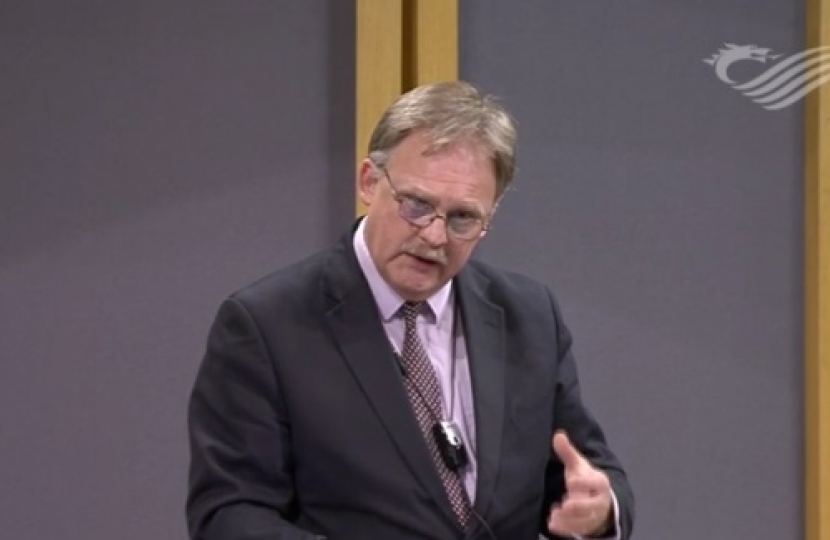
Speaking in today’s Assembly Debate on International Women’s Day 2017, North Wales Assembly Member Mark Isherwood called for action to address the barriers that continue to prevent women from playing as full a role as men in the economic, political, social and cultural life of Wales.
Mr Isherwood, the Welsh Conservative Shadow Communities Secretary, said that while progress has been made in some areas, women are still facing many obstacles in life because of their gender, and, with County Council elections on the horizon, he referred to the fact that EHRC figures show that only 26% of Councillors in Wales are women.
He said:
“My Wife is a Flintshire County Councillor and until we address the health-harming misogyny that she has suffered there, more women will not be encouraged to come forward.”
He added:
“As the charity Chwarae Teg – Fair Play, state: As a new economic strategy for Wales is developed, it’s crucial that the following three questions are addressed: How can the strategy deliver equally for men and women? How can the strategy take equal / fair consideration of the contribution of men and women? And how can it be ensured that the strategy doesn’t create any additional barriers to women reaching their full potential?
“They emphasise that Wales’ economy is not currently making the most of women’s potential, where: women’s economic participation remains lower than men’s; women continue to be more commonly employed in sectors that are lower paid and offer fewer opportunities to progress – and are less likely to be represented in more senior positions, and women are often found working below their skill level, with a lack of appropriate childcare and/or flexible working options cited as contributing factors. In consequence, a 16% gender pay gap persists in Wales.
“Chwarae Teg’s experience from delivering the Women in Public Life Development Scheme confirms that there are sufficient numbers of interested, suitably qualified and experienced women in Wales to provide boards with a ready-made pool of talented women to fill available posts and help the boards achieve their goals.
They also propose using public procurement, investing in good social infrastructures such as child care and health services, and tackling gender stereotypes, as additional steps to address the complex causes of the gender pay gap.
“This includes Healthy relationship education, helping pupils develop a better understanding of gender roles, and ensuring that teachers and schools are supported to create gender inclusive learning environments.”
Mr Isherwood also highlighted the fact that many females with Autism are left undiagnosed, misdiagnosed or without support because of the different presentations of autism in women and girls.
He said: “As the parents of many misdiagnosed daughters have told me, “statutory bodies don’t understand that thinking has changed, that autism presents differently in girls, and that many females are unable to access a diagnosis due to stereotyped views, leaving autistic girls and women vulnerable to low self-worth, anxiety, depression and self-harm”.